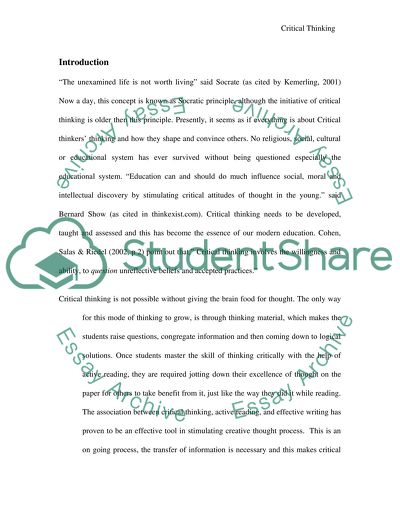Cite this document
(“Critical Thinking Skills: the Development and Nurturing of the Skill Research Paper”, n.d.)
Critical Thinking Skills: the Development and Nurturing of the Skill Research Paper. Retrieved from https://studentshare.org/creative-writing/1503610-critical-thinking-master-essay
Critical Thinking Skills: the Development and Nurturing of the Skill Research Paper. Retrieved from https://studentshare.org/creative-writing/1503610-critical-thinking-master-essay
(Critical Thinking Skills: The Development and Nurturing of the Skill Research Paper)
Critical Thinking Skills: The Development and Nurturing of the Skill Research Paper. https://studentshare.org/creative-writing/1503610-critical-thinking-master-essay.
Critical Thinking Skills: The Development and Nurturing of the Skill Research Paper. https://studentshare.org/creative-writing/1503610-critical-thinking-master-essay.
“Critical Thinking Skills: The Development and Nurturing of the Skill Research Paper”, n.d. https://studentshare.org/creative-writing/1503610-critical-thinking-master-essay.


